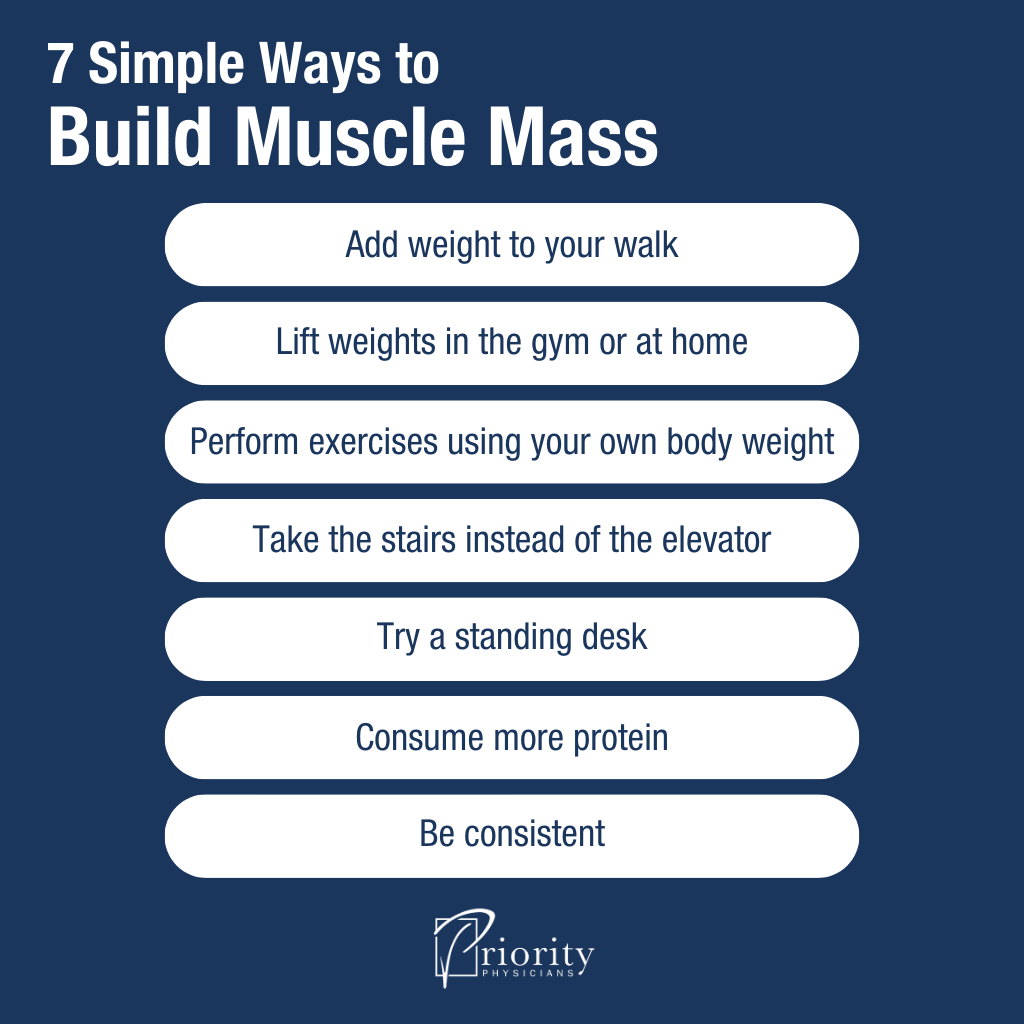Remember when body mass index (BMI) was considered a superior predictive tool for health and weight loss goals? Not anymore. Studies eventually found BMI lacking as an indicator of general health, as it only considers height and weight.
For example, two 5′11″ 200-pound males may have the same BMI, but radically different body compositions. The man with 50% body fat is likely headed for health problems, while the man who’s all muscle, with just 7% body fat, is probably on a much better trajectory for high-quality living into his 80s and beyond.
Today, we’ve found that measuring a patient’s body composition gives us a more informed snapshot of the path they’re on health-wise.
The New Gold Standard: Body Composition
Unlike BMI, body composition considers a range of physical components such as fat, muscle, and water. At Priority Physicians, we use the four-point InBody Body Comp Analysis machine to accurately assess patients’ body compositions.
The InBody machine uses bioimpedance to send a small, painless signal from one arm to the other and down both legs. Signals move faster through muscle than through body fat, so based on how long it takes to detect those signals end-to-end, the machine gauges how much muscle they pass through vs. fat.
The result is a precise calculation of the patient’s actual muscle mass.
Why Is Muscle Mass Important?
Muscle and fat perform differently, both hormonally and metabolically. It’s important for your physician to understand your ratio of muscle to fat. That ratio helps us determine your state of health and flag any potential health risks diminishing muscle mass may cause.
The InBody analysis tells us what we need to know about your body composition:
- Type C body — high in body fat and low in muscle
- Type D body — low in fat and high in muscle
- Type I body — equal balance of fat and muscle
When you lose weight, it’s normal to lose both fat and muscle. Conversely, when you gain weight, you might gain a combination of fat and muscle, or you may gain only muscle. It depends on what’s adding the pounds.
Gaining five pounds of muscle puts you in a better metabolic state than gaining five pounds of adipose (fat) cells. Those five pounds of fat release estrogen and negatively impact your insulin levels, which may lead to diabetes down the road. But five extra pounds of lean muscle work to keep you strong and in good health.
To achieve longevity and support your quality of life, improve your body composition by building muscle mass. The best time to gain muscle is right now, when you’re as young as you’re going to be!
Strong muscles can mean the difference between being independent into your 80s and living in a nursing home.

Body Composition Exercises: How to Build the Muscle Mass You Need
Cardio activity is great for heart health, but not as much for well-balanced body composition. Muscle resistance exercise is the most effective way to build muscle.
Once developed, muscle mass boosts your basal metabolic rate, so you’ll burn more calories every day. And the health benefits can compound over time.
You don’t have to look like a prizefighter or have a fancy home gym to increase muscle mass. Here are some simple, efficient body composition exercises and tips that’ll develop muscles and burn unwanted fat:
- Add weight to your walk: Strap half-pound or one-pound weights to your ankles whenever you get out for a walk.
- Lift weights in the gym or at home: Choose 5-to-15-pound dumbbells and focus on working the larger muscle groups (quads, hamstrings, glutes, calves, etc.).
- Perform basic exercises using your own body weight: Fire up those major muscle groups by adding pushups, squats, lunges, and other resistance-based exercises to your day.
- Take the stairs instead of the elevator: Climbing stairs engages every muscle in your lower body.
- Try a standing desk: Avoid sitting all day when you work. A standing desk can support slow-twitch muscle fibers that help build endurance.
- Consume more protein. If you’re working your muscles but not consuming enough protein, you may be wasting your time. Muscles need adequate protein to develop and grow.
- Be consistent. Muscles need regular attention. Use them or you’ll lose them.

The Takeaway
Remember: If you want to be awesome at 80, don’t settle for mediocrity at 50.
We invite you to work with your Priority Physicians to develop a personalized program that will build your muscles and power up your metabolism.
Schedule time for us to assess your body composition and help you chart a path to improvement. We’ll keep an eye on your development and continue to recommend steps toward living your best life.

